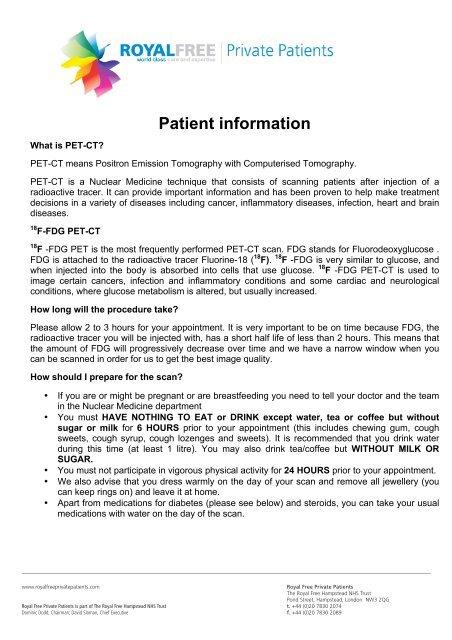New Peace Proposal from Congo and Rwanda: A Step Towards Stability
In a notable turn of events in the ongoing strife within the Great Lakes region, both the Democratic Republic of Congo (DRC) and Rwanda have put forth a draft peace proposal aimed at resolving enduring conflicts that have long hindered stability and security in this area. This initiative emerges amidst rising violence, particularly in eastern Congo, where numerous armed factions are reportedly receiving support from Rwandan forces. As global scrutiny increases, this peace proposal could signify a pivotal moment in diplomatic efforts to address the crisis, with the United States reaffirming its dedication to facilitating a negotiated resolution.This article delves into the implications of this draft proposal while exploring regional dynamics as stakeholders strive for peace.
Peace Proposal from Congo and Rwanda Amidst Tensions
The recent diplomatic initiative by representatives from both nations aims to tackle persistent tensions that have affected their relationship for years.The backdrop includes intensified military actions and geopolitical strategies that threaten not only these two countries but also the wider Great Lakes region. The proposed framework emphasizes dialog and collaboration while addressing vital issues such as security concerns, territorial sovereignty, and humanitarian assistance needs. Key elements highlighted in this draft include:
- Ceasefire Agreements: An immediate cessation of hostilities to safeguard civilian lives.
- Collaborative Security Measures: Formation of joint task forces dedicated to dismantling cross-border armed groups.
- Aid Accessibility: Ensuring unhindered delivery of humanitarian aid to those affected by conflict.
Both countries are under notable international pressure to resolve their disputes effectively while alleviating conflict’s toll on local populations. Experts caution that failure to address these tensions could lead to renewed violence, complicating an already precarious situation further. The international community—including U.S. officials—has expressed cautious optimism regarding this proposal but stresses the necessity for concrete actions and trust-building initiatives from both parties involved. As regional players observe closely, success will hinge on how well these proposals are implemented along with each government’s commitment to uphold them.
| Stakeholder | Role | Influence Level | |
|---|---|---|---|
| Congo | Main Negotiator | High | |
| Rwanda | Main Participant | High | |
| The United Nations | Observer | Medium | |
| United States | Supporter | Medium | |
| Regional Organizations (e.g., East African Community) | Facilitator | Medium | |
| Humanitarian Organizations | Aid Providers < td Low |
The ongoing discussions will require unwavering commitment from both DRC and Rwanda towards adhering strictly to principles outlined within their draft agreement if they hope for lasting peace solutions.
Continuous engagement by international stakeholders is equally crucial; it ensures that affected communities’ voices resonate throughout negotiations leading towards just resolutions.
This collaborative effort can be illustrated through various stakeholder roles which highlight how each contributes uniquely towards achieving sustainable outcomes across borders.
U.S.’s Role in Promoting Dialogue and Stability Within Region
The participation of the United States is critical during these ongoing negotiations between Congo & Rwanda as it fosters an habitat conducive for constructive dialogue.
With both nations presenting their respective drafts,Washington’s involvement extends beyond mere observation;,acting instead like an intermediary supported by considerable diplomatic leverage.
By utilizing its connections effectively alongside available resources,the U.S.can enhance communication channels between conflicting parties thereby minimizing misunderstandings which frequently enough escalate tensions further still!
This focus on diplomacy underscores broader strategies aimed at stabilizing regions characterized by intricate geopolitical dynamics!
Apart from mediation efforts undertaken thus far,the U.S.has potential avenues through which it can provide significant assistance ensuring momentum remains directed toward peaceful resolutions:
- Mediation Support: Facilitation direct talks & negotiations!
- Economic Aid: Financial incentives tied compliance agreements reached!
- Capacity Building: Supporting local governance fostering trust among communities involved!
- <b>
Inclusive Dialogue:& lt;/ b>
Ensuring representation marginalized communities included negotiations taking place.& lt;br /> - <b>
Accountability Mechanisms:& lt;/ b>
Establishing clear procedures monitoring agreements holding parties accountable violations committed against them.& lt;br /> - <b>
Economic Cooperation Initiatives:& lt;/ b > ;Developing joint projects promoting interdependence shared prosperity among neighboring states involved here too!& l t ;/ li > - <b >
Coordination Humanitarian Assistance Programs :& l t ;/b > ;Implementing frameworks coordinated responses addressing immediate needs working long-term progress goals simultaneously !
</ b>
As discussions progress forward,</ b>
the role played out here serves dual purposes: acting stabilizing force whilst simultaneously providing hope those impacted conflicts occurring throughout Great Lakes region emphasizing importance collective action required achieve lasting results!</ p >
Strategies For Sustainable Peace And Regional Cooperation Initiatives!
<b>
Given recent developments surrounding negotiation landscape between DRC/Rwanda,</ b>
multilateral approaches become essential fostering sustained cooperation amongst all relevant actors involved ensuring frameworks established adequately address underlying grievances prioritizing welfare affected populations directly impacted conflicts occurring around them!& lt;br />
Key recommendations facilitating process include:& lt;br />
Additionally , involvement organizations such as African Union East African Community play pivotal roles mediating discussions establishing dedicated funds supporting local conflict resolution initiatives contributing overall sustainability achieved over time !
A collaborative framework illustrating potential outcomes might look like below:
| Collaborative Action | Expected Outcome | ||
|---|---|---|---|
Joint Military Exercises: Increased trust reduced tensions Congolese Rwandan forces engaged together .
| Cross-border Trade Agreements: Enhanced economic stability reduced incentives conflict arising due lack resources available .
| Cultural Exchange Programs: Strengthened community ties mutual understanding fostered through shared experiences .</ sp an /
| <table/ Conclusion Section: A Path Forward Towards Lasting Peace?</ h2In summary , submission drafts presented recently signifies vital strides taken tackling longstanding issues affecting relationships between DRC/Rwanda over decades past ! With active support provided US government backing initiative cautiously optimistic regarding prospects achieving stable resolutions moving forward within Great Lakes area observed closely observers await see navigate challenges lie ahead responses local stakeholders partners alike ! As developments unfold hopes remain high pave way future cooperation ultimately securing brighter tomorrow millions Central Africa facing uncertainties today ! |







